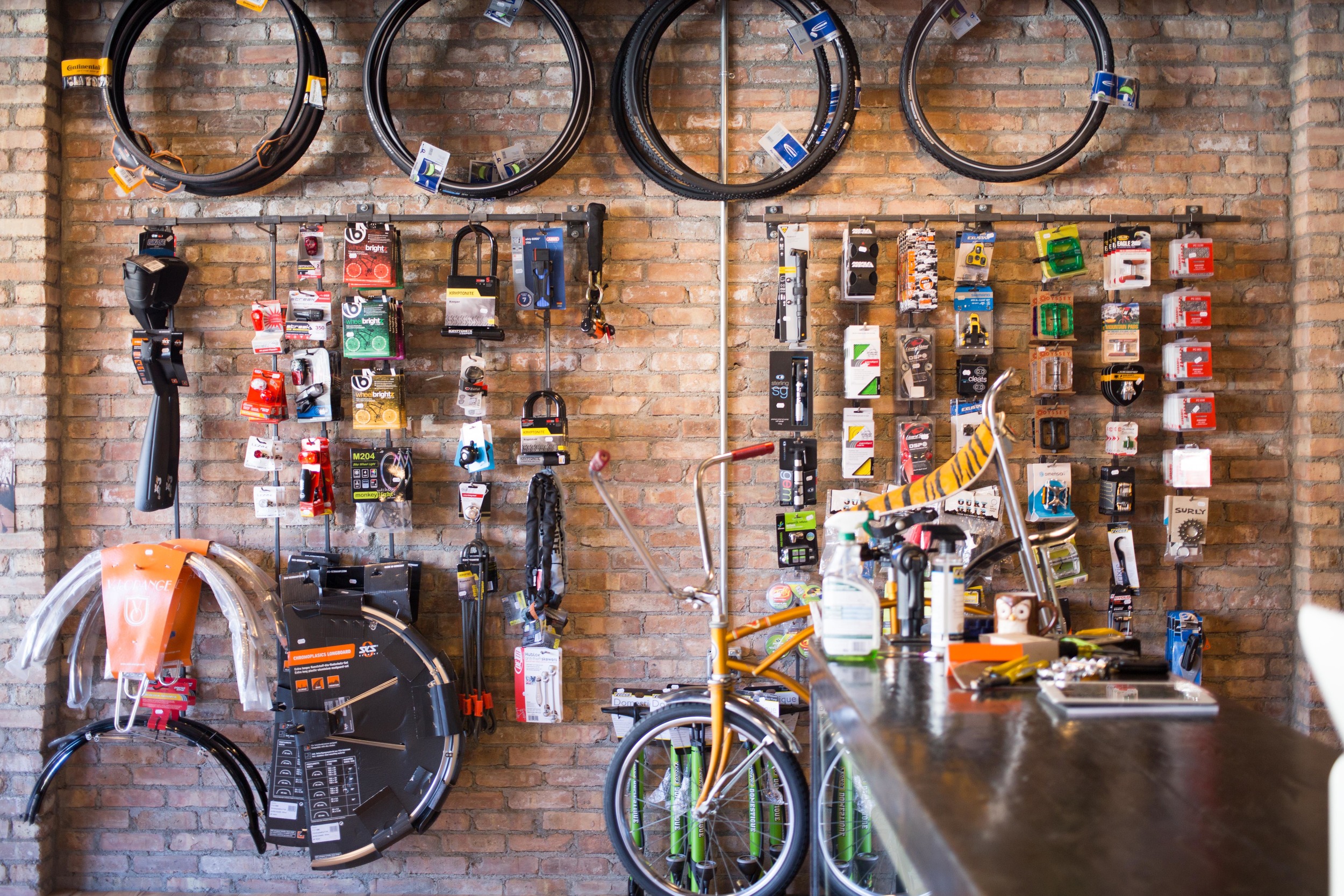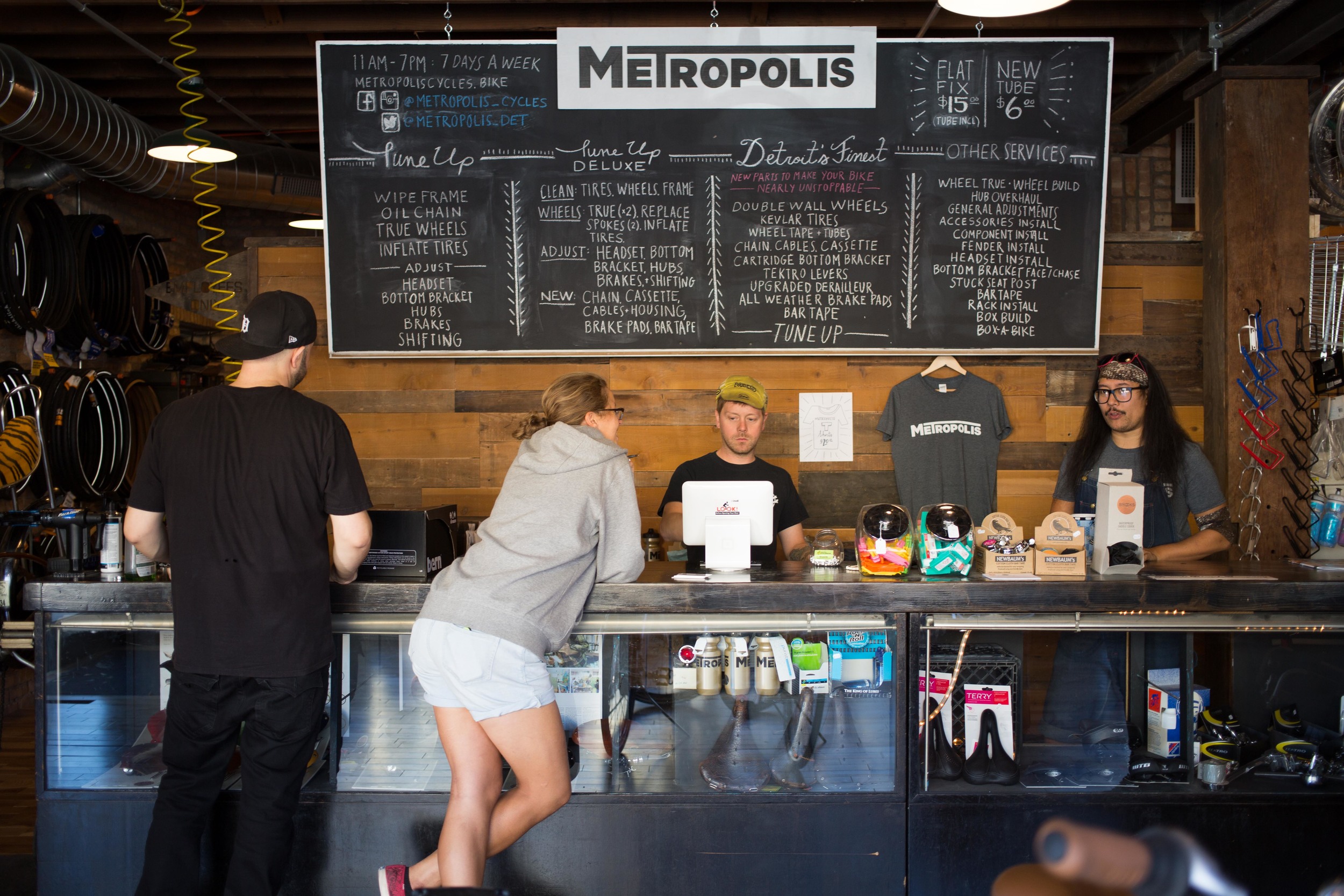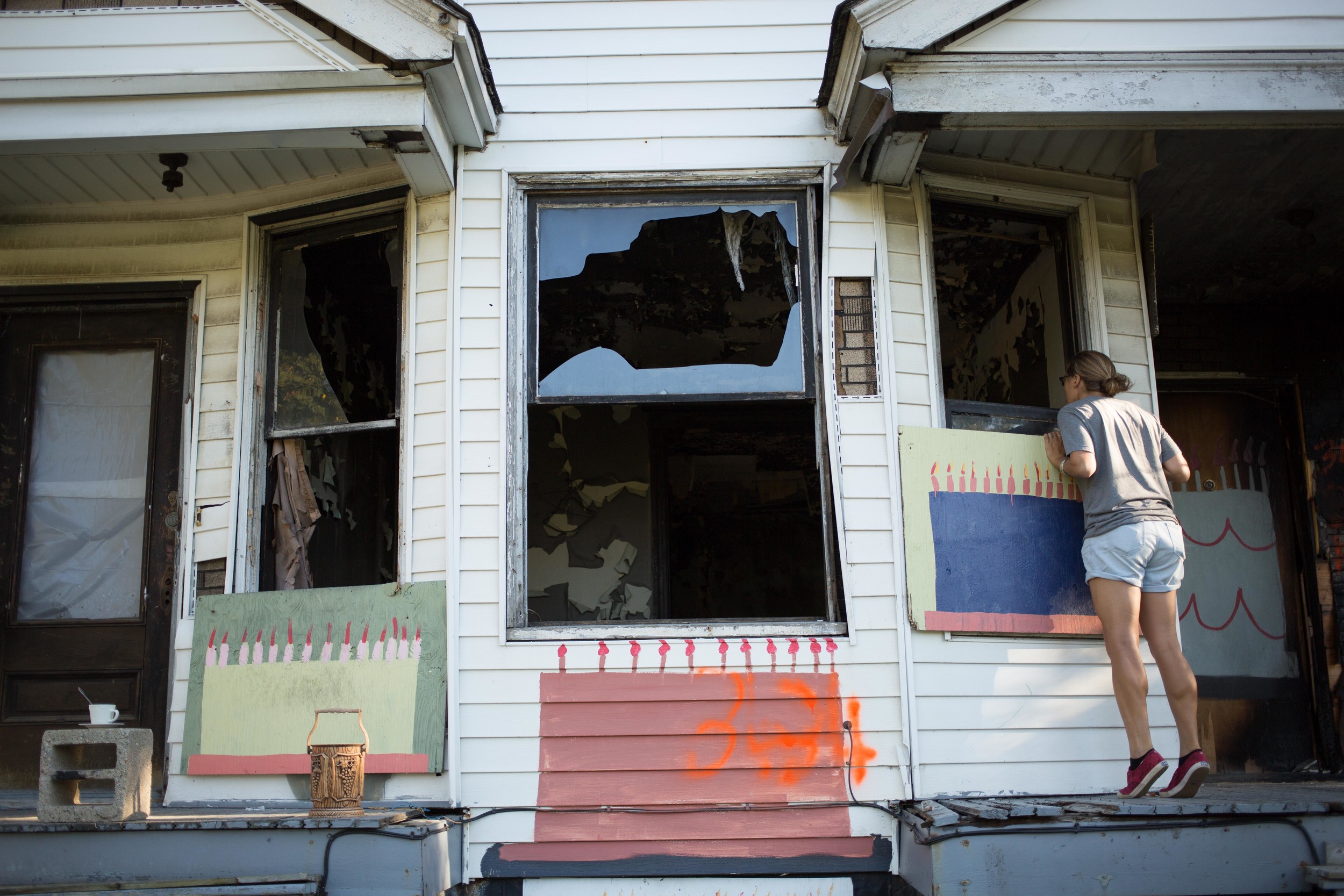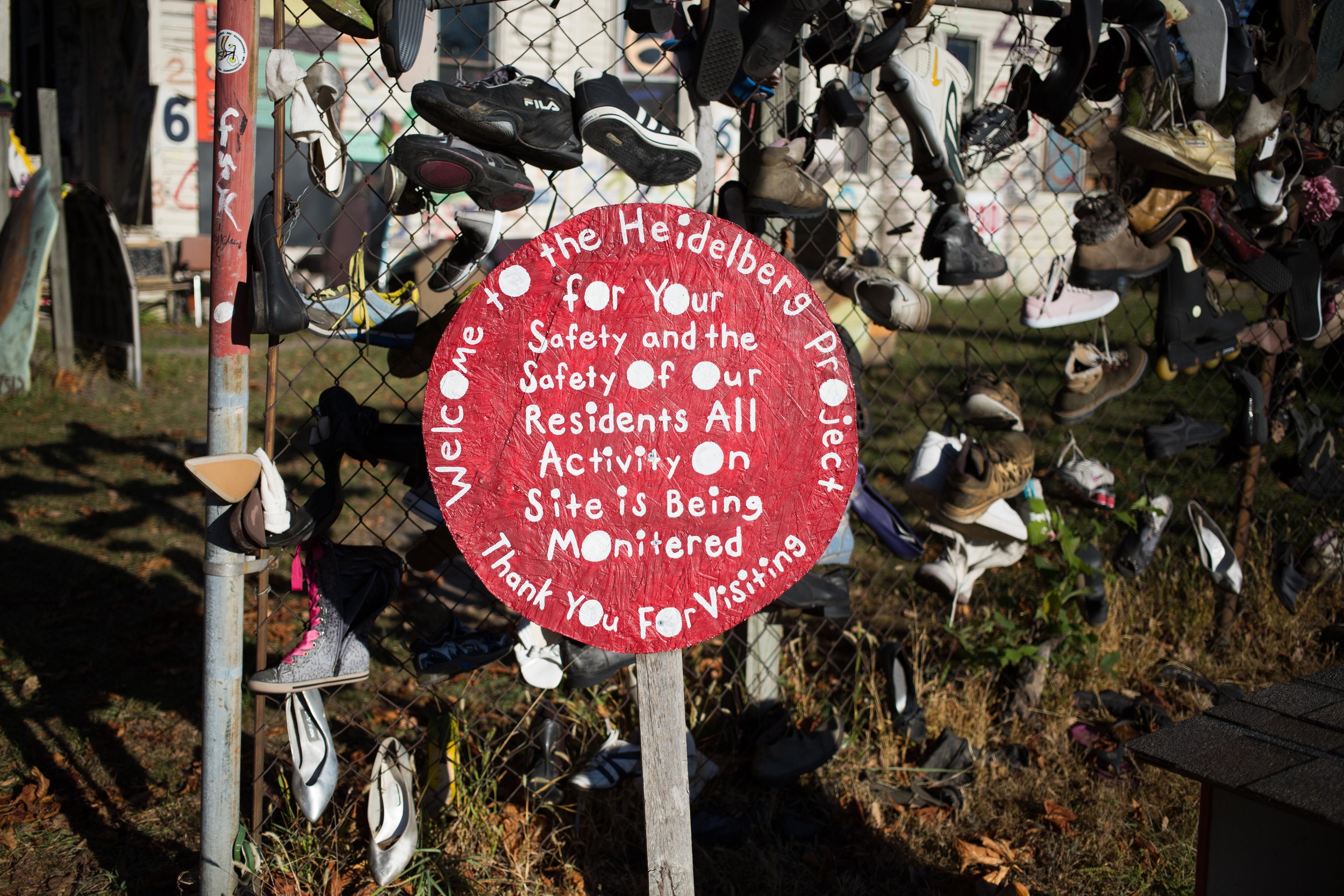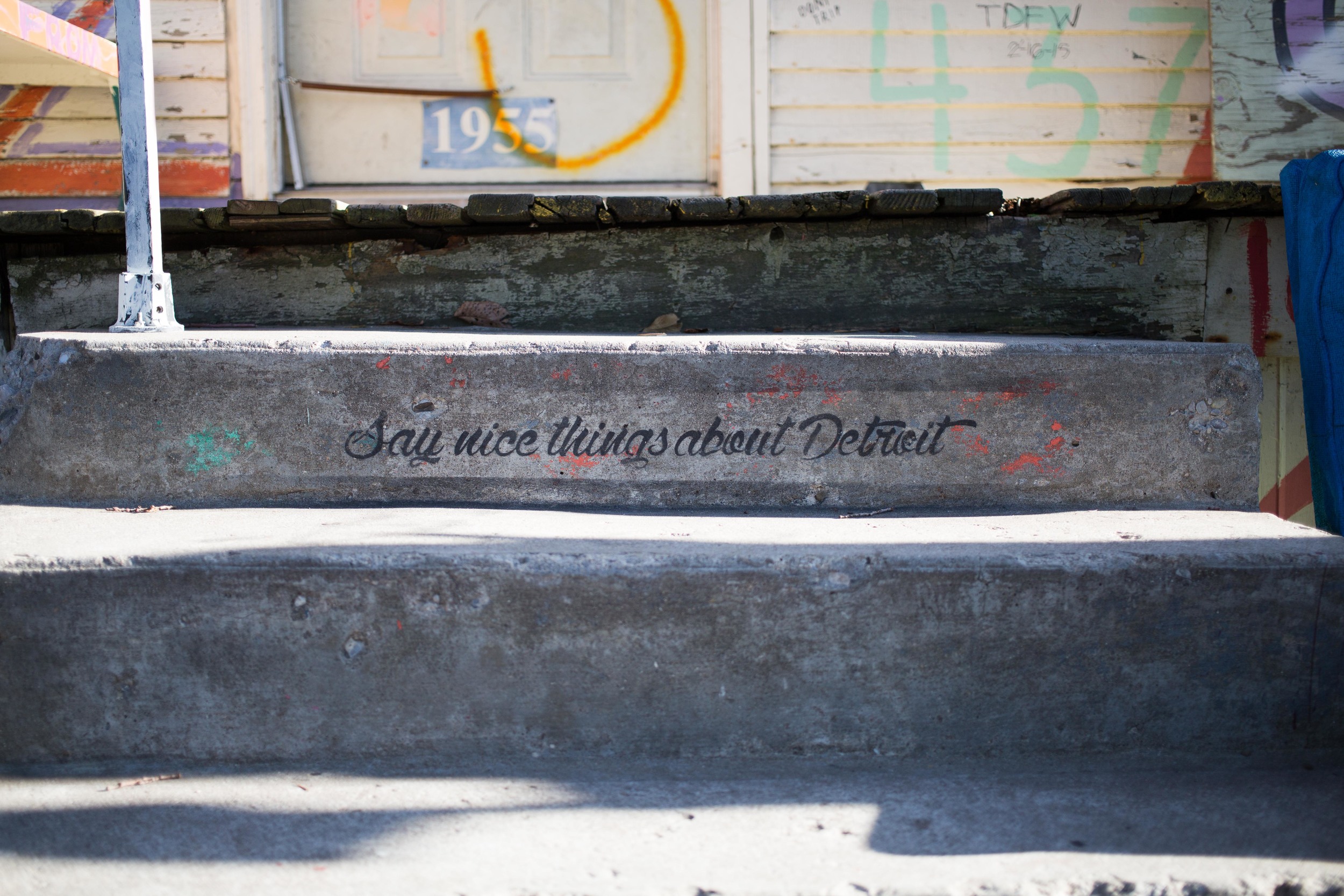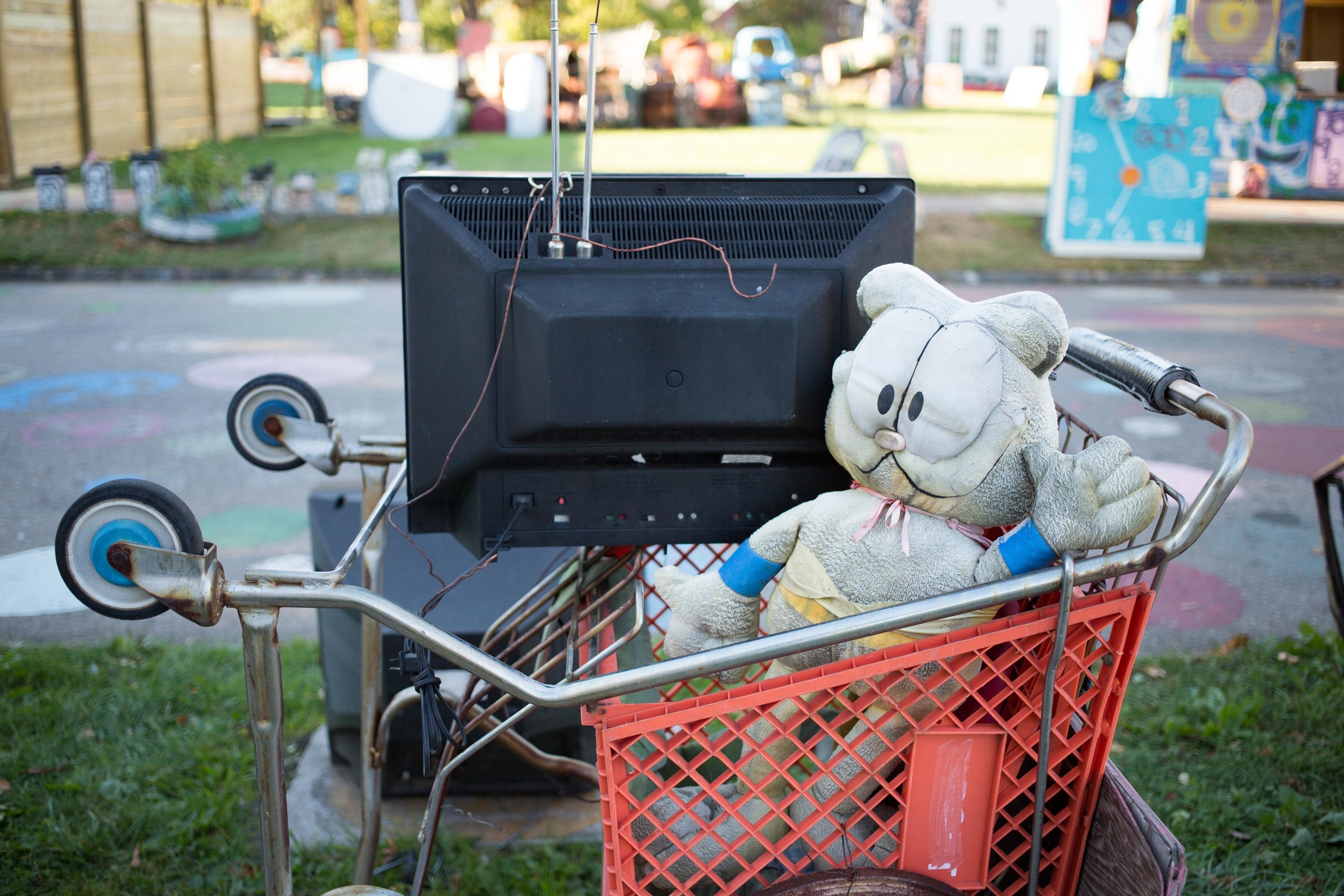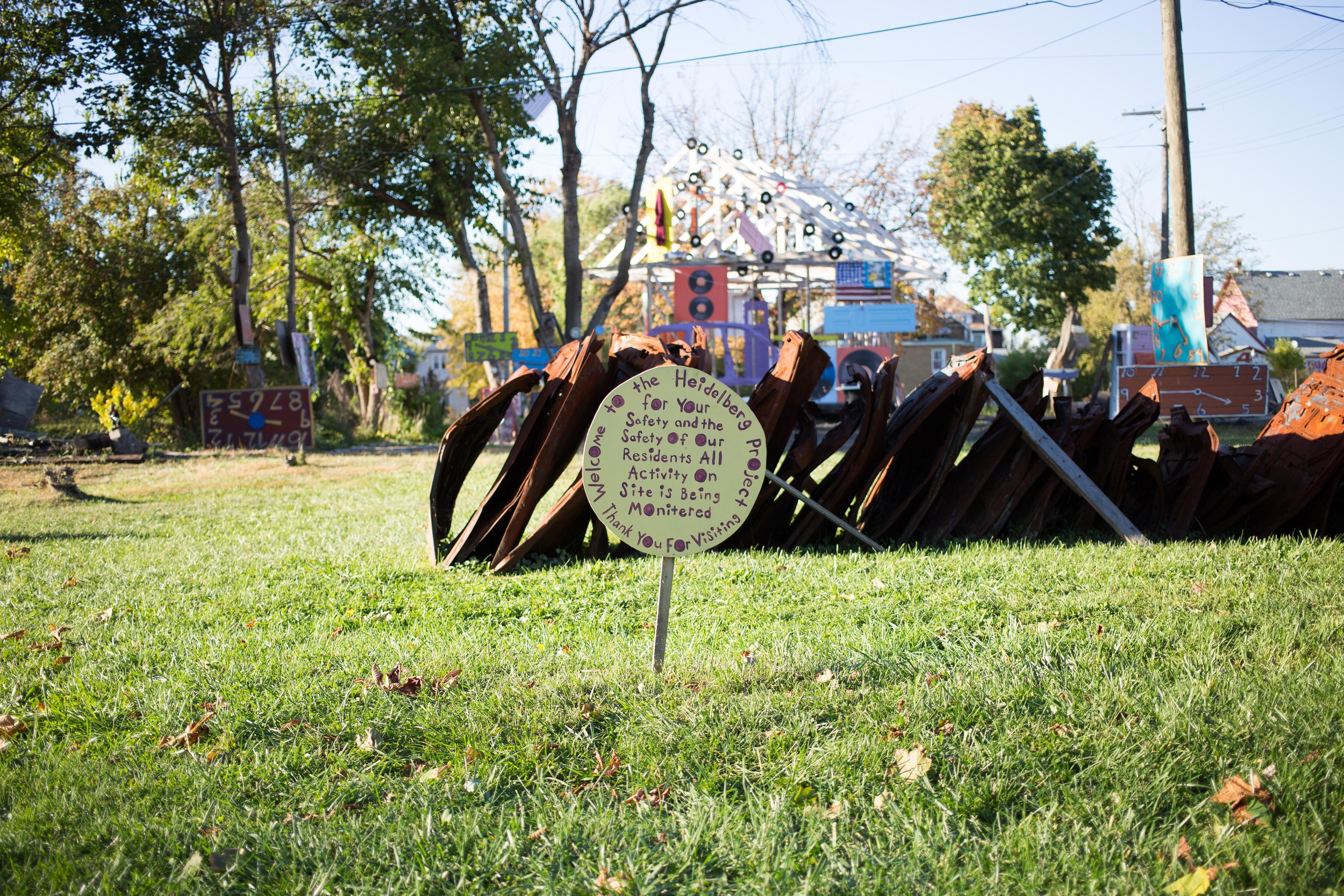I use the words 'magic' and 'magical' a lot. Ask anyone who knows me - they are both some of my favorite words. Ever.
I've been thinking about these words though and I had a thought. It seems a bit insincere to describe something as magical – almost like a cop out. At times it can be misconstrued as lazy and/or non-descriptive. Often, one who is speculative will ask, “Well, what does that mean? Magic, how?” But there are those times when the feels seem to be coming from a mystical space, or when there really is no explanation for certain happenings. This is when, I believe, the term ‘magical,’ is and can be used appropriately. Ladies and gentlemen, Detroit is a magical place – and I will tell you why.
When you think about the 60’s and what an important time that was for our nation in terms of politics, fashion, design, race, drugs, literature, etc., I always wonder if we, too, are living in a time where 50 years down the line, history books will reference material from our decade and use it as a beacon to measure the make of many things. I think that in some spaces/industries, like that of our tech world, this thought has already come to fruition, but to measure the sheer amount of things that happened within the decade of the 60s would be impossible to compare the activity of what is available in 2015. The availability, desire, and the make isn’t quite there. Internationally, it isn’t quite there either. We aren’t suffering from a global famine or depression that clouded the experiences of many generations. You can literally get anything delivered to you within 2 days - or rather, 2 hours.
The reason I bring this up is because there is a city that almost captures the entire measure of possibility poised in the 60s and that city is… you guessed it – Detroit.
That’s a pretty bold thing to say, no? I agree. I wondered whether or not I should write such a thought that is gasp worthy. It’s like when my brother stated that the new Alabama Shakes soundtrack, 'Sound and Color,' was the best soundtrack of 2015. “Blasphemy.” I said, “You can’t just say stuff like that. Taylor Swift’s album, 1989, is damn good.” And then I heard it from beginning to end and decided that it really is pretty amazing. I hate it when I'm wrong. I'm such a sore loser.
Anyway, perhaps my experience in Detroit has skewed my vision of what I am about to say (and that is precisely why User Experience is so important), but I won’t make my UX notes until the very end of this post. I will say, however, that what I lived through in the two short weeks of my stay in Detroit was as blissful as fresh cotton candy.
There are 3 things: The physical city structure, the people, and the political climate.
An image of Corktown on a Sunday afternoon.
1. The Physical City Structure
Right now, a city that was built for 3 million people is currently inhabited by 750,000. An urban landscape like that already calls for curiosity. The feeling of physical emptiness is something that I believe everyone should experience and although I don't think you should just tour Detroit, I encourage you to go and just sit - preferably by yourself. Feel the emptiness of a city that has been abandoned and begin to imagine what it was like and what it could be like.
For me, a whirlwind of things came to mind. In one of my imaginations, I placed the magic of Motown and saw the hustle and bustle of well dressed people enjoying the pleasures of life without a care in the world. In another, I saw the important business meetings that were occurring within the automotive industry which drove America's great invention to the spotlight of almost every country's news stand around the world. Martin Luther King, Jr. also came to mind as I was able to more accurately place where the 'Walk to Freedom' speech rang to and from the streets of Detroit. Rosa Parks was there too - badass interventions and all.
But now it's empty. Everyone left. This, to me, is worse than actually building a city. It's like throwing away food - the act should be painful. So, if we were to think of a city as food, Detroit is a garden full of ingredients that policy makers, industry leaders, artists, activists, and the list goes on, can begin to cook a feast with - with unbound creativity. And if it all goes right, Detroit could be a model city that other cities in the United States could look to for advice. The key will be to thoroughly study the successes and mistakes of other cities in history and to conduct small prototype-like experiments on what might actually make a city in America better. The risk is this: It can either go really well, or it can go very poorly. There is no middle ground.
Metropolis Bike Shop in Corktown.
2. The People
Watching people is probably one of life's greatest gifts. No - not in the creepy way that some of you may have just interpreted it, but in the piecing together way of understanding a culture that can be then be described on paper from an anthropological perspective. Sheesh people. Come on. :) Side Note: I fundamentally believe this is why one must travel. It doesn't have to be to another country but even to neighboring towns - this not only brings self-awareness but also births inspiration.
During my experience in Detroit, I not only met a group of people who I can already call my extended family but from a community perspective, I experienced a lot of eye-contact and simple 'Hello's' from random strangers. I thought this was strange at first not only because of its sheer existence (I'm from Los Angeles where ignoring people is the norm) but these interactions had one thing in common compared to many other cities I have visited - and that is sincerity. What I noticed is that the scarcity of people in Detroit as well as the condition of the city of Detroit, has created a culture of human acknowledgement and small encounters that are just as connective as a 3 hour long chat with a friend with coffee in hand. What beauty, no?
I thought about why this behavior exists and what I have found is that the people of Detroit, those who have been born and raised there as well as those who have made it their home, are perhaps under a level of survival mode. I could hear silent voices whispering, "You must acknowledge one another. You must depend on each other. The others have left us and they aren't coming back. You are all we have." I could be totally wrong but I do believe that there is a level of truth to my analysis. When you're in survival mode you see extreme behavior which is something that Detroit is no stranger to. As much kindness I received from gentle strangers, there was just as must violence in the neighborhood next door.
This image is from some steps of a home at The Heidelberg Project.
3. The Political Climate
When I met a few of the people I was going to be working with for the first time, they educated me on several things that would prep me for my stay. One statement rang truer and stronger than others and it was this:
"If you're going to live in Detroit, you have to be willing to talk about Detroit. All the time."
- Adam + Lena Selzer
I'd like to bring attention to this fact only because this is the kicker for how Detroit can and will change - and, quite frankly, the fact that everyone wants it to change. Politics as we know it is in shambles right now but when humans are presented with devastation, one of two things can happen. The ill-willed politicians can arrive and push an agenda that has a manipulative and underlying benefit for another population; or a community can rise up and write their own story if given the opportunity and the tools to do so. To the people, from the people.
During my stay, Grace Lee Boggs passed away. I'm not quite sure how the community of Detroit felt about it only because I didn't hear a lot of people talk about it. I didn't have a TV so news reports weren't really spouting information to me about this either. I did have the internet though and there were several articles written about her physical and spiritual departure. What did this mean for Detroit? Something in the air was fishy and I feel as though her departure may have been a wake-up call for the city to use as inspiration for the future. Her writings on politics and new societies will be even more precious because of her death and perhaps the city will consider acting upon her wisdom and knowledge. Maybe Detroit needed her spirit to leave in order to become what she wanted it to be.
The fact that our U.S. government made an investment into the city of Detroit is reason enough to know that in the game of politics, all eyes are on Detroit. Who will make the first move? Who will be the leader of change? Who will be the villain in the story? Can Detroit actually become a great city again? I suppose time will tell.
Maybe this was a honeymoon stage of my relationship with Detroit. Perhaps there is so much more that I didn't see and this entry is absolutely invalid. What I do know, though, is that I am shaped by my experiences which are now shaping my thoughts and expectations about Detroit in a personal way. I cannot stress the fact that this is why UX is so critical to our lives. People make decisions based on what they know and have experienced in the past - as well as whether or not they feel safe enough to experience something new and different in the future. As a UX professional, what will you consider when you are designing your next experience?
From what I have seen, there is so much potential for this city. The hardest part of something that has potential is that most of the time, the thing must meet its appropriate nurturers to correctly lead it up to where it can reach. On the flip side, the thing must recognize its nurturer and commit to struggle through the pain of growing into something it wants to be. It would be an atrocity to see Detroit go into shambles again especially when the potential is so high. America has never had a city that hasn't disappointed its citizens and the problem most likely exists within the larger government. The thing that I can't get out of my mind though is, "How has Helsinki, Stockholm, and Copenhagen achieved such greatness in their constructs of their environments? If they can do it, aren't there ways that we can? Why must we always be so reactive rather than proactive with our communities?"










